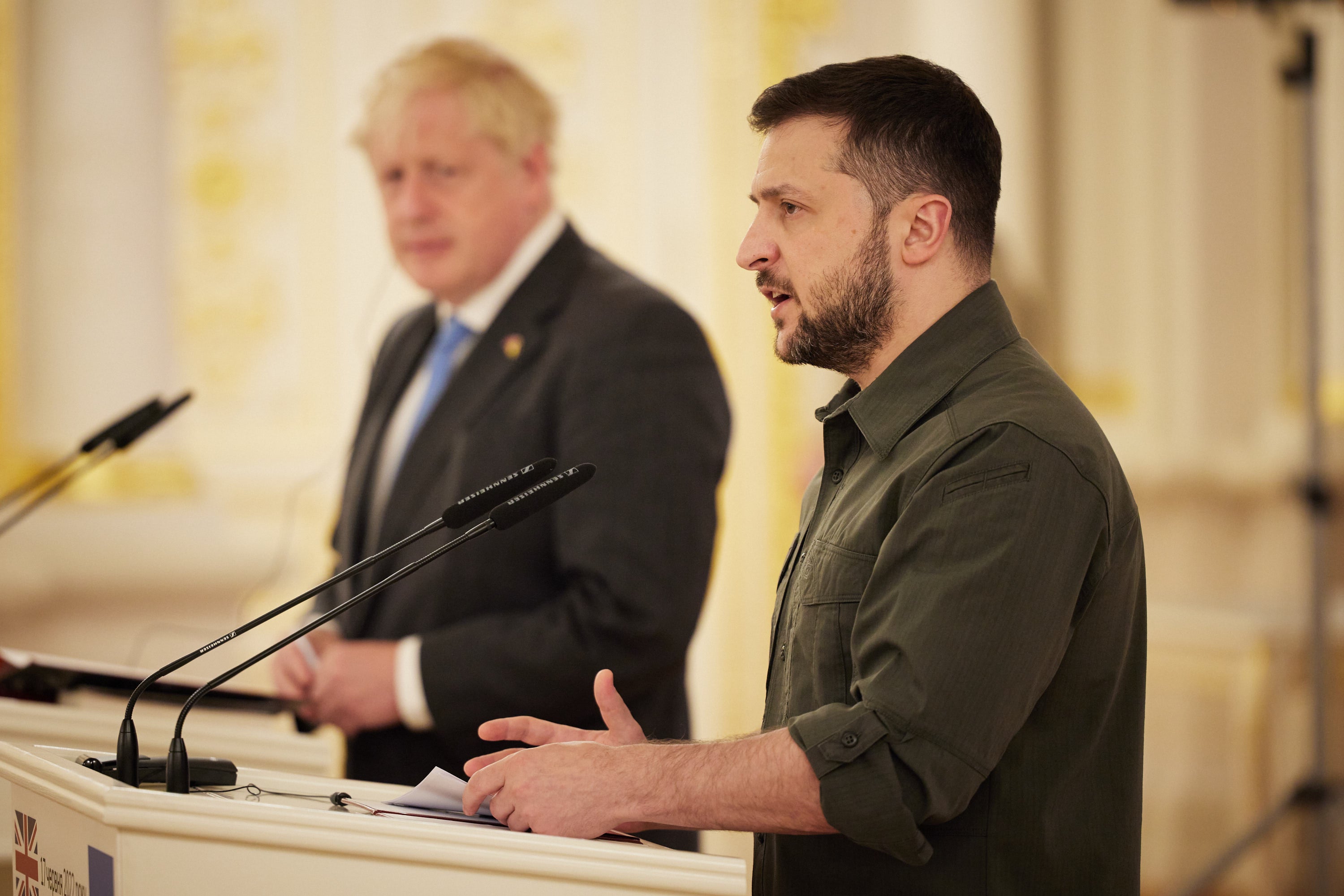PM warns against forcing Ukraine into accepting ‘bad peace deal’
There are concerns in Kyiv that Germany and France will push President Volodymyr Zelensky to accept a ceasefire.

Your support helps us to tell the story
From reproductive rights to climate change to Big Tech, The Independent is on the ground when the story is developing. Whether it's investigating the financials of Elon Musk's pro-Trump PAC or producing our latest documentary, 'The A Word', which shines a light on the American women fighting for reproductive rights, we know how important it is to parse out the facts from the messaging.
At such a critical moment in US history, we need reporters on the ground. Your donation allows us to keep sending journalists to speak to both sides of the story.
The Independent is trusted by Americans across the entire political spectrum. And unlike many other quality news outlets, we choose not to lock Americans out of our reporting and analysis with paywalls. We believe quality journalism should be available to everyone, paid for by those who can afford it.
Your support makes all the difference.Boris Johnson has warned Nato allies it would be a “disaster” to pressure Ukraine into accepting a “bad peace” deal that would see swathes of territory surrendered to Vladimir Putin.
The Prime Minister said there is little hope of sending the Navy to rescue grain from the Russian president’s blockade as he set sights on talks with Turkey to prevent famine being a consequence of the invasion.
There are concerns in Kyiv that Germany and France will push President Volodymyr Zelensky to accept a ceasefire deal that would see him concede land to Moscow.
Mr Johnson, who is at a summit of Commonwealth leaders in Rwanda before talks with G7 and Nato allies in Europe in the coming days, warned there is “no question there is a lot of Ukraine fatigue now in the world”.
Now is not the time to settle and encourage the Ukrainians to settle for a bad peace, for a peace by which they are invited to give up chunks of their territory in return for a ceasefire
“But I think they are going to win. I know they are going to win. It is their country. They are fighting for it desperately hard,” he told reporters travelling with him in Kigali.
“But they need to be properly supported. So, my message to colleagues at the G7 and at Nato in particular is going to be now is not the time to settle and encourage the Ukrainians to settle for a bad peace, for a peace by which they are invited to give up chunks of their territory in return for a ceasefire.
“I think that would be a disaster. It would be a trigger for further escalation by Putin whenever he wanted. That would do much further economic damage to the world.”
A key feature of Nato’s talks in Madrid will be freeing the more than 20 tonnes of grain from Ukraine before it rots, a crisis gaining extra importance because farmers are harvesting their 2022 crops with a shortage of storage space.
Foreign Secretary Liz Truss will use talks in Turkey on Thursday to raise the possibility of the safe passage of ships to rescue the grain.
Mr Johnson said there is a “strong moral case” for getting the grain out of Odesa and through the Black Sea, a perilous task thanks to Russian ships and mines.
He was focusing on the Turkish talks to find a way for safe passage of the grain but conceded “we are a long way off” sending in British boats on a retrieval mission.
“A lot of the countries we are about to see depend on that type of grain. Some of the poorest countries in the world absolutely depend on grain from Ukraine,” the Prime Minister said.
“What’s happening now in Ukraine is not solely responsible for the price spikes in food around the world. That would be a gross exaggeration to think that. But it is a factor.
“We need to do whatever we can to get it out.
“Under the Montreux Convention we can’t, no navy can now go into the Black Sea, the Turks won’t allow that to happen.
“But we certainly need to find a way of getting the grain out that’s not subject to Putin’s control.
“That requires a great deal of care and thought, and we are working with the Turks and other European partners to see what we can do.
“But we are a long way off trying to send the Navy through the Bosporus and into the Black Sea. But I see why you think in that way.”